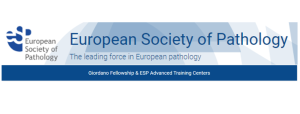Fellowships & Traineeships
Applying for postgraduate pathology training in the form of fellowships or traineeships is an excellent way to increase your experience and your network. It allows trainees to strengthen their knowledge by being exposed to a wide variety and large volume of clinical material while having a level of responsibility that is appropriate to their level of experience.
This can also generate new knowledge in the form of basic or clinical research, dissemination of knowledge through teaching of medical students, trainees, or practitioners of either pathology or clinical medicine, and the provision of high-quality, state-of-the-art patient care.
Duties and Responsibilities
The training involves consistent exposure to and responsibility for clinical specimens, with supervision and backup from faculty. The trainee’s involvement with challenging consultation cases from pathologists around the world gives him/her insight into some of the most difficult issues in haematopathology diagnosis as well as the role academic institutions play in making their expertise available to other institutions within the healthcare delivery system. Communication with clinical colleagues in the course of patient care is an important part of this experience. Fellows are given enough responsibility to test their knowledge and decision-making capacities. Every case and every decision is reviewed by a senior pathologist, who corrects and gives feedback on the fellow’s judgments and performance. In this way, the fellow’s communication skills and overall professional development are enhanced.
Fellows must also learn to critically evaluate the literature, practice evidence-based medicine, and present laboratory and other data at conferences; these activities are incorporated into the daily responsibilities of the trainees. Fellows are expected to design and carry out at least one independent clinical, translational, or basic research project, thereby teaching them the use of scientific evidence and application of research methods to advance the haematopathology field.
Duration and Application Requirements
The duration of the programme, the requirements and steps to be taken are individual to each fellowship and traineeship. To find out how to go through the process, please follow the link to your preferred programme.
So, if you have fellowship vacancies in your hospital, you can post them here, so that many European doctors in training who are members of the Young EA4HP may be interested in the possibilities that training in your hospital offers.
Please send the information to the secretariat: [email protected]
Colorado, University of Colorado-hematopathology (2023, 2024): Link
Michigan, Wayne State University-hematopathology (2023): Link
Texas, University of Texas Southwestern Medical Center-hematopathology (2023): Link
Giordano Fellowship & ESP Advanced Training Centers

A programme for the advanced training in pathology supported by the European Society of Pathology (ESP). The programme follows ESP’s vision for excellence in Pathology for optimal patient case: Link
European Grants
Doctoral and postdoctoral fellowship

This page provides information about the Marie Skłodowska-Curie Actions (MSCA). Part of Horizon Europe, the MSCA are the European Union’s flagship funding programme for doctoral education and postdoctoral training of researchers. Here you will find information about the objectives of the MSCA and the types of funding available: Link
Open Calls for research projects

European Commission – Funding programmes that support research and innovation projects, with links to open and upcoming calls: Link
Scientific courses from EMBL Heidelberg

The computational biology community at EMBL is growing steadily and rapidly. This is a reflection of EMBL’s position at the forefront of cutting-edge data-driven research, but brings with it some challenges. The Bio-IT project is a community initiative, which aims to build, support, and promote computational biology activity at EMBL Heidelberg and beyond: Link

